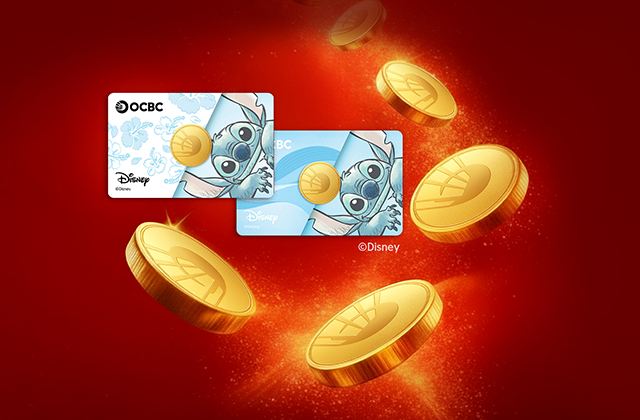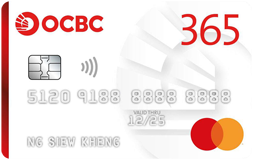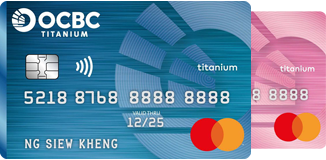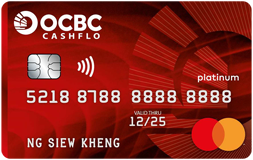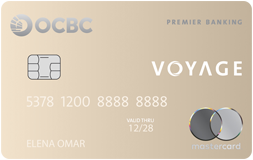Help & Support
Common Reporting Standard (CRS) - General
-
What is CRS?
Common Reporting Standard (CRS) is a global framework for countries that participate in it to share account information of non-residents. Malaysia is a participating country and financial institutions in Malaysia must report account information of non-residents to the Inland Revenue Board of Malaysia (LHDN). LHDN will then forward the information to the countries of residence of these accountholders, if those countries participate in the CRS. At the same time, LHDN will receive information from other participating countries on information of Malaysian residents' accounts in those participating countries. The objective of this exchange of information is to encourage compliance of participating countries' tax laws by their respective residents and to prevent tax evasion. CRS is a reporting framework and it does not introduce new taxes.
-
What you need to do?
You need to complete the OCBC Self-Certification Form to declare your tax residency(ies) and you may be asked to provide supporting document(s). Click below for the form.
If you have any further queries regarding the CRS and your tax position, please contact a tax advisor. OCBC Bank is unable to provide tax advice. You may also find useful reference at the website of the Organisation for Economic Co-operation and Development (OECD).
-
Is OCBC required to comply with CRS?
Yes, OCBC is legally required to comply with CRS. -
Are other bank in Malaysia required to comply with CRS too?
Yes, all banks in Malaysia are similarly required by law to comply with CRS. -
When will CRS be effective in Malaysia?
CRS will come into effort in Malaysia on 1st July 2017. -
What is OCBC Bank required to do?
OCBC Bank must:
- Seek its customer's cooperation to identify their tax residencies; and
- Report financial accounts held directly or indirectly by customers who are foreign tax residents to LHDN.
-
Which countries are participating in the CRS?
Please refer to the website of Organisation for Economic Co-operation and Development (OECD). -
How does CRS affect the customer?
1. What does this mean for me?
During account opening you are required to complete a self-certification form that includes a declaration of your tax residency(ies). You may also be asked to provide your passport and/or other government-issued document to support the tax residency declared in your self-certification. Your account details will be disclosed to LHDN for reporting to foreign country(ies) where you are tax resident according to the information in your self-certification.
2. What information will I be required to provide?
In addition to basic information collected, we will ask for your:
- Country(ies) of tax residency
- Tax Identification Number (TIN). More details may be requested if the applicant is not a natural person e.g. a company.
3. I am a Malaysian, why do I need to complete the self-certification form?
OCBC Bank is legally required to establish the tax residency status of all our customers, regardless of their nationalities. You therefore need to complete the self-certification. If the self-certification shows that your only tax residency is in Malaysia, your account details will not be disclosed to LHDN under the CRS.
4. I have provided you with my details. Why are you asking me for supporting documents?
We are required by law to verify the details in your self-certification form. Sometimes, we may ask you for your passport and/or other government-issued documentation to confirm your tax residency.
5. What happens if my tax residency changes?
If there is any change in the information you have provided to us, please inform us immediately so that we can discuss with you whether any action is required. You may need to complete a new self-certification form. If your new tax residency details are not available to us or ascertainable, OCBC Bank may report your account details based on the information available in our records.
6. What happens if I don't provide my tax residency information to OCBC Malaysia?
OCBC Bank is committed to being fully CRS-compliant. OCBC Bank will not open new accounts or offer additional products and services to customers who choose not to comply with the CRS requirements. OCBC Bank may report account details of non-cooperative customers to LHDN.
7. What happens if I don't provide accurate information regarding my tax residency?
The authorities may decide to take actions, and there could be penalties for breaches under the relevant tax laws.
8. How can you reveal my account information without my permission under CRS?
Disclosure under CRS is a legal requirement. Your specific consent is not required for disclosure of your account details to LHDN.
9. I have previously provided my information under Foreign Account Tax Compliance Act (FATCA). Why is OCBC Bank asking me to provide more information under CRS?
CRS and FATCA are separate reporting frameworks. FATCA focuses on tax compliance of US persons, while CRS targets offshore tax compliance of account holders who hold tax residencies in participating countries.
-
Tax Residency and Declaration
1. What is my tax residency?
Tax residency is where you are resident for tax purposes. Each country has its own criteria to determine it. Generally, but not always, you will be a tax resident of the country in which you live. Please contact a professional tax advisor or check the OECD's website (http://www.oecd.org/tax/automaticexchange/crs-implementation-and-assistance/tax-residency/) for more information on how to determine your tax residency. OCBC Bank is not able to provide any tax advice.
2. Where can I find further information on tax residency?
Countries participating in the CRS have published their rules on tax residence for reference at OECD's website.
3. Why can't you tell me whether I am a tax resident of country X based on the information I have given to you?
Tax residency is defined by each country's local tax laws and may vary from those of another country. Tax residency may be dependent on various factors, such as physical presence in a country, employment in a country, or place of abode. We are not professional tax consultants and we are unable to provide you with tax advice.
4. What happens if I don't have a tax identification number ("TIN")?
There are only two exceptions in which TIN is not required to be collected or reported:
- A TIN is not issued by the country where you are tax resident in; and
- The domestic law of the country where you are resident in does not require the collection of such TIN. Other than the above, we may not proceed with account opening if you are unable to provide a TIN.
-
Reporting
1. How is my information reported?
OCBC Bank is legally required to report accounts of tax residents of participating countries to LHDN. LHDN will then exchange such information with tax authorities of the relevant participating countries.
2. What information will be reported to the LHDN?
The information that will be reported to the tax authorities will include the information provided in the self certification form as well as details of the accounts and products you have with us.
3. If I have a joint account, what is the amount to be reported for me?
For reporting purposes, each holder of the joint account is attributed the entire balance or value of the account as well as the entire amounts paid or credited to the joint account. Accordingly, the entire amount in the joint account will be reported for you.
4. Are there situations where there will be withholding of amounts for tax, like in the case of FATCA?
No, there is no withholding tax requirement under CRS.
Note: OCBC Bank refers to OCBC Bank (Malaysia) Berhad and OCBC Al-Amin Bank Berhad.

